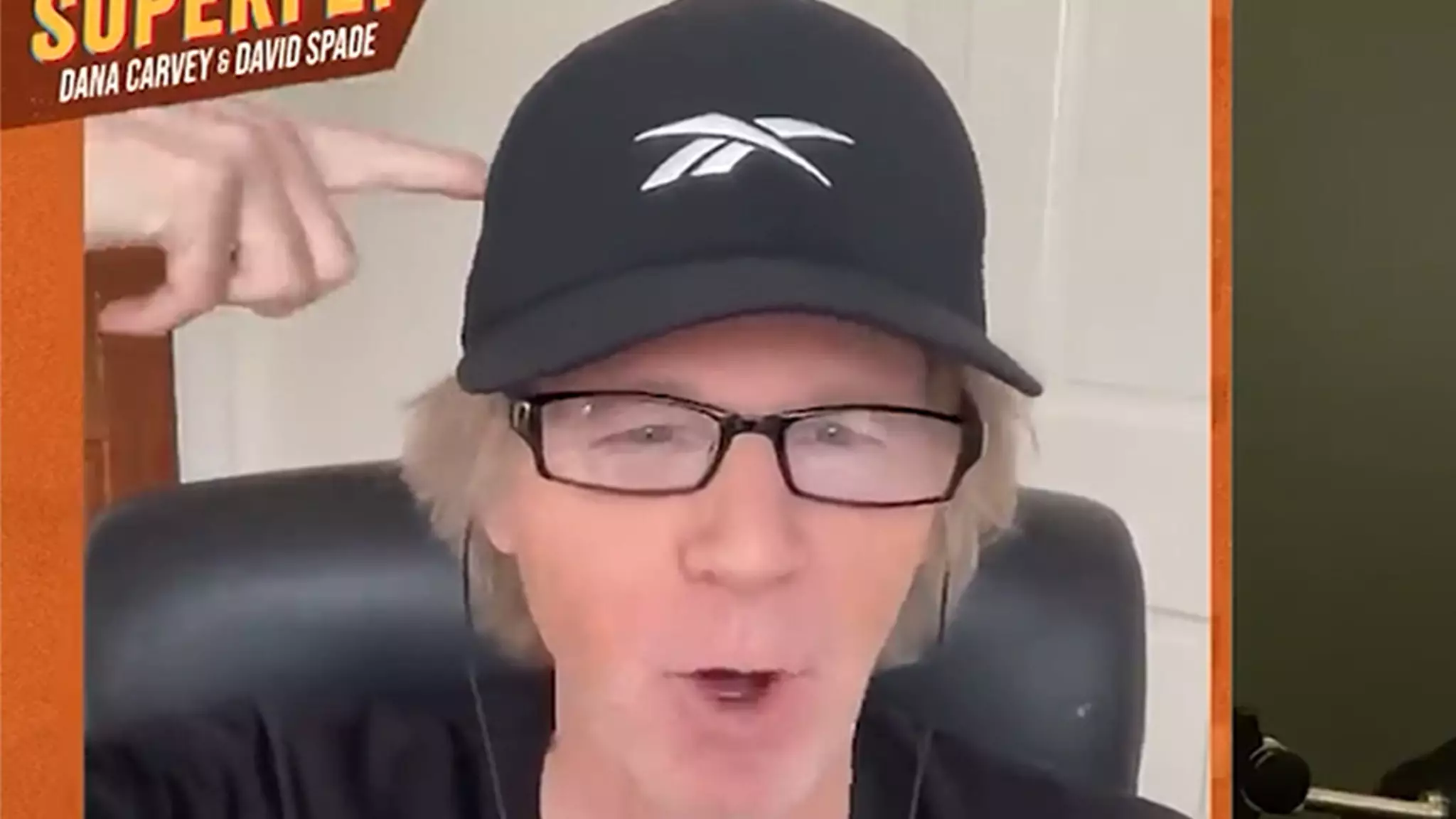In the realm of comedic impersonations, accuracy and authenticity often reign supreme. However, Dana Carvey recently found himself at the center of a light-hearted controversy when he attempted to impersonate tech powerhouse Elon Musk during an episode of David Spade’s podcast, “Superfly.” The conversation turned amusingly sideways as Carvey, renowned for his parodic talents, openly admitted that he struggles to replicate Musk’s distinctive voice. This self-awareness adds a layer of authenticity to Carvey’s comedic style; after all, a comedian who can poke fun at their own shortcomings is a refreshing force in the entertainment industry.
During a nostalgic segment on the podcast, Carvey reminisced about his on-stage experience with a malfunctioning hair dryer that resulted in singed hair—an incident ripe for comedic elaboration. Spade, seizing the opportunity to blend humor with topical references, suggested that Musk might see a hair dryer repurposed as a flamethrower as an innovative idea. Responding to this whimsy, Carvey launched into a spirited yet unconventional imitation of Musk. However, he quickly followed up with a candid admission, stating, “I can’t do Elon Musk very well, but I can do something that sounds not like anything.” This moment encapsulates the essence of comedy: it’s often less about exact imitation and more about evoking laughter through personality and creativity.
The Challenge of Capturing Musk’s Complexity
Carvey’s admission raises questions about the complexity of impersonating a figure like Musk. The billionaire hails from a diverse background, with roots in South Africa, Canada, and the United States. This amalgamation makes it difficult for any one individual to adequately capture his unique vocal nuances. Moreover, Carvey’s insight into this challenge isn’t merely self-deprecating; it speaks to a broader truth in the art of impersonation. The best impersonators not only mimic voices but also capture essences and idiosyncrasies. Carvey’s struggle is a reminder that the best comedic expressions often breach the lines of literal interpretation, focusing instead on thematic interpretation.
Following Carvey’s attempt, Musk himself took to social media platform X, quipping that the entire ‘SNL’ cast was frustrated with Donald Trump’s election victory, almost as if confirming Carvey’s unsuccessful impersonation. Musk commented, “Dana Carvey just sounds like Dana Carvey,” which reflects Musk’s whimsical and often ironic sense of humor. This interaction highlights a trend where public figures engage with comedy, suggesting that they may not take themselves too seriously despite their high profiles.
The Final Takeaway
In the end, Dana Carvey’s foray into the world of Elon Musk impersonation might not have hit all the right notes, yet it serves a greater purpose. It opens discussions about the nature of modern comedy and the challenges therein. The laughter derived from Carvey’s self-awareness and failure demonstrates that sometimes the journey—filled with attempts, failures, and rejections—becomes the true essence of comedy. Fans may not leave with a definitive Musk impression, but they do get a glimpse into the heartfelt creativity that defines Carvey’s enduring career. In the world of humor, authenticity and relatability often triumph over technical precision, making Carvey’s podcast episode a delightful exploration worth revisiting.


Leave a Reply